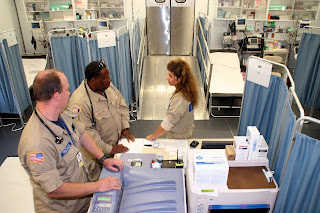There are many things that you should know and remember after having any type of surgery, but after back surgery, it is especially necessary to take extra care in order to get through the pain and the healing process. Your doctors and nurses will be more than happy to explain things thoroughly to you so that you understand them, even if you’re nervous. It’s OK to ask questions, it’s OK to be curious. The surgery itself will take anywhere between two and five hours, and after that… you’ll need to heal.
Posterior Lumbar Fusion Baltimore MD: Aftercare
After your surgery, you will need to stay in the hospital for between 2 and 5 days. Before the medical team will allow you to leave, you will need to demonstrate that you can do things like get into and out of bed, walk around by yourself, and understand your limitations. While healing, you won’t be able to bend at the waist, lift anything heavy or twisting at the waist. These things sound very restrictive, but they are meant to help you heal properly, avoiding setbacks. As time passes, you’ll be able to resume more normal activities, so be patient.
Even though you won’t always need to wear a back brace after having posterior lumbar fusion Baltimore MD, some patients will need to. This can provide additional support while healing. All patients will need to be sure that they can (and do!) keep the wound area clean and dry. It will need to be bandaged, and these need to be changed every few days, especially if they become dirty or come loose. Showering is OK beginning a few days after surgery, but while cleaning your body, be sure that the water does not directly hit the surgical site. Baths are not recommended for the first two weeks, until the wound has healed completely at the surface.
After posterior lumbar fusion, patients may begin to return to “normal” activities as they see fit - and as recommended by a doctor. Driving may resume after roughly two weeks, as long as patients are comfortable and can sit in the vehicle with no pain. Working is a little different, and patients should wait until their pain has decreased - usually between two and three weeks for light duties. More strenuous work may take a few months to work back up to, but this is normal.
Going through your required physical therapy sessions and following all of your doctor’s orders will help the healing process go smoothly, ensuring that your spinal surgery is successful. For more information, you can visit http://www.medstarunionortho.org.












